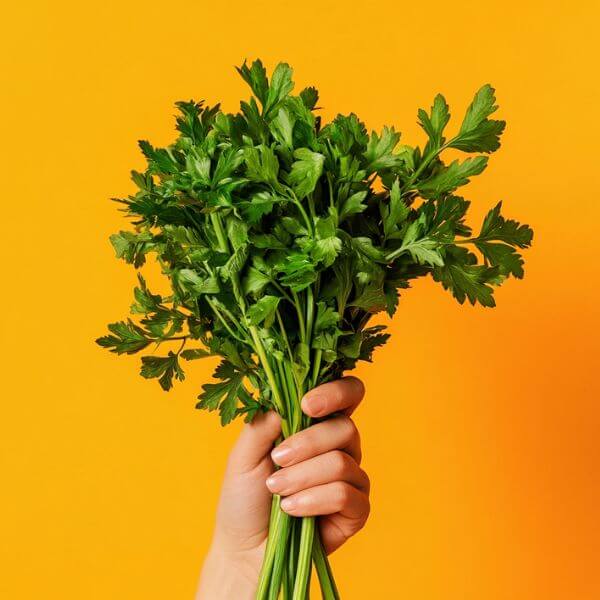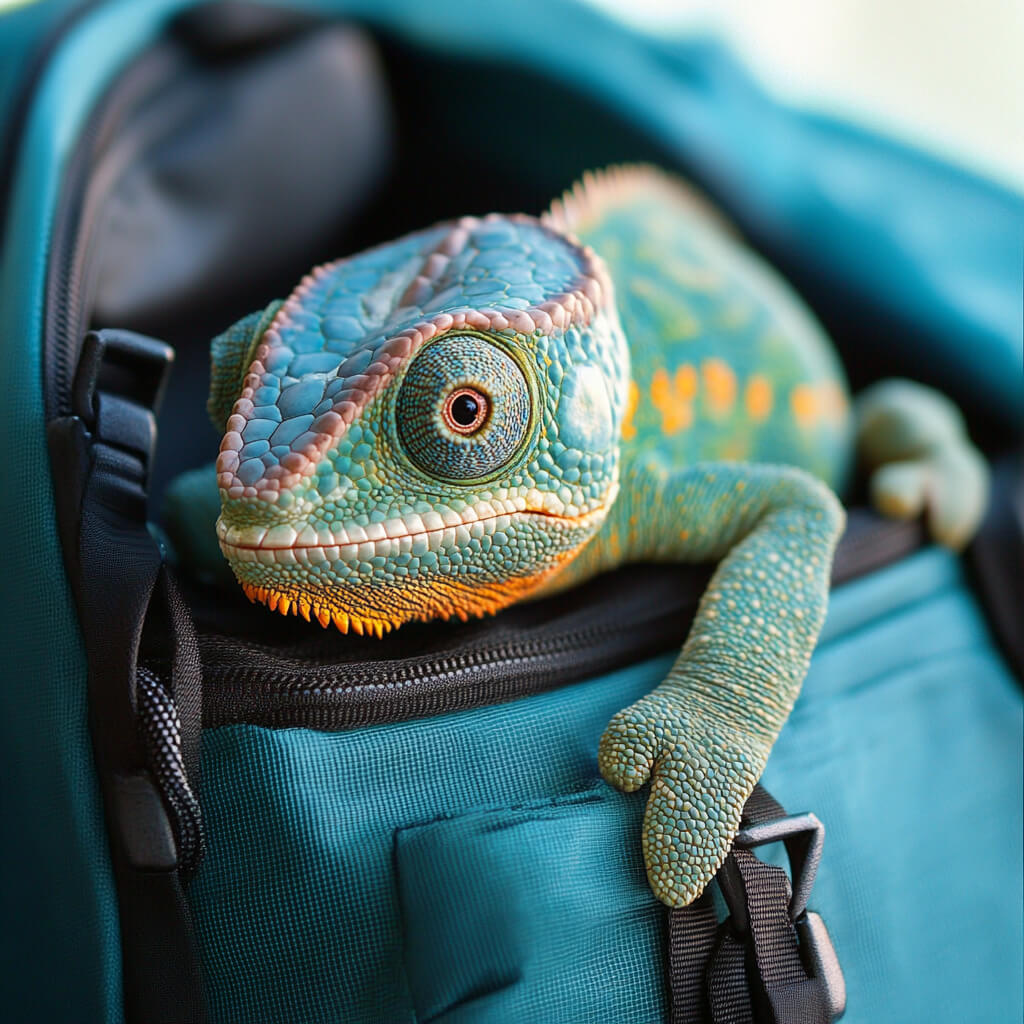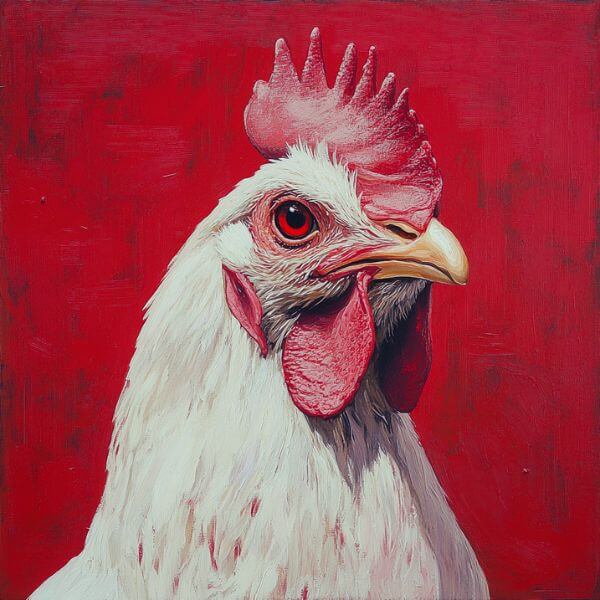Yes, chameleons can eat parsley!
But there’s more to it than just tossing a bunch of parsley into their habitat.
Parsley is actually pretty good for chameleons.
It’s packed with vitamins and minerals that can help keep your pet in tip-top shape. But like with most things, moderation is key.
Here’s a quick breakdown of parsley’s nutritional value for chameleons:
| Nutrient | Benefit for Chameleons |
|---|---|
| Vitamin A | Supports eye health and immune system |
| Vitamin C | Boosts immune system |
| Vitamin K | Helps with blood clotting |
| Calcium | Important for bone health |
| Iron | Supports overall health |
As for how often and how much to feed, think of parsley as a little treat.
A small sprig once or twice a week is plenty. Too much of a good thing can sometimes be bad, you know?
Benefits of parsley for chameleons
Parsley is like a little green powerhouse of goodness for your chameleon. Here’s why:
1. Vitamins galore: As we saw in the table above, parsley is packed with vitamins that help keep your chameleon healthy.
2. Hydration helper: Parsley has a high water content, which can help keep your chameleon hydrated.
3. Fiber friend: The fiber in parsley can aid in digestion.
But remember, while parsley is good, it shouldn’t be the only veggie in your chameleon’s diet. Think of it as one color in the rainbow of foods your chameleon needs.
Risks of feeding parsley to chameleons
Now, don’t panic, but there are a few things to watch out for when feeding parsley to your chameleon:
- Too much of a good thing: Overfeeding parsley can lead to digestive issues.
- Pesticide problems: If the parsley isn’t organic, it might have pesticides that could harm your chameleon.
- Calcium concerns: While parsley has calcium, it also contains oxalic acid, which can interfere with calcium absorption if fed in large amounts.
To stay on the safe side, always wash the parsley thoroughly and feed it in moderation.
How to safely feed parsley to chameleons
Feeding parsley to your chameleon doesn’t have to be complicated. Here’s a simple guide:
- Wash the parsley thoroughly to remove any potential pesticides.
- Chop it into small, manageable pieces.
- Mix it with other chameleon-friendly veggies for a nutritious salad.
- Place the veggie mix in a shallow dish or clip it to the side of the enclosure.
Remember, chameleons might need to see the parsley a few times before deciding to try it. Don’t get discouraged if they don’t gobble it up right away!
Other safe vegetables for chameleons
Variety is the spice of life, even for chameleons!
Here are some other veggies your chameleon might enjoy:
Mix these up with parsley for a colorful and nutritious chameleon feast. It’s like creating a little salad bar for your pet!
Chameleon feeding guidelines
Feeding your chameleon isn’t rocket science, but there are a few things to keep in mind:
- Veggies should make up about 20-30% of an adult chameleon’s diet.
- Offer vegetables every other day.
- Remove any uneaten veggies after a few hours to prevent spoilage.
- Always provide fresh, clean water.
Remember, different chameleon species might have slightly different needs. For example, veiled chameleons tend to eat more plant matter than some other species.
FAQs
How often can chameleons eat parsley?
A small amount once or twice a week is plenty.
Can all chameleon species eat parsley?
While most chameleons can eat parsley, always check specific dietary needs for your chameleon species.
Should parsley be fed fresh or dried to chameleons?
Fresh is best! It has more nutrients and moisture.
Can baby chameleons eat parsley?
It’s best to wait until they’re a bit older. Focus on insects for baby chameleons.
What other herbs are safe for chameleons?
Herbs like basil and cilantro can be safe in moderation, but always introduce new foods slowly.
Conclusion
Parsley can indeed be a tasty and nutritious treat for your chameleon. Just remember:
- Moderation is key
- Always wash the parsley thoroughly
- Mix it up with other veggies
Feeding your chameleon a varied diet, including a bit of parsley now and then, can help keep them healthy and happy. It’s all about balance!
Remember, every chameleon is unique. If you’re ever unsure about your pet’s diet, don’t hesitate to chat with a reptile vet. They’re the real experts and can give you tailored advice for your scaly friend.
Now go forth and feed your chameleon like a pro! Your colorful companion will thank you for it.







Leave a Reply